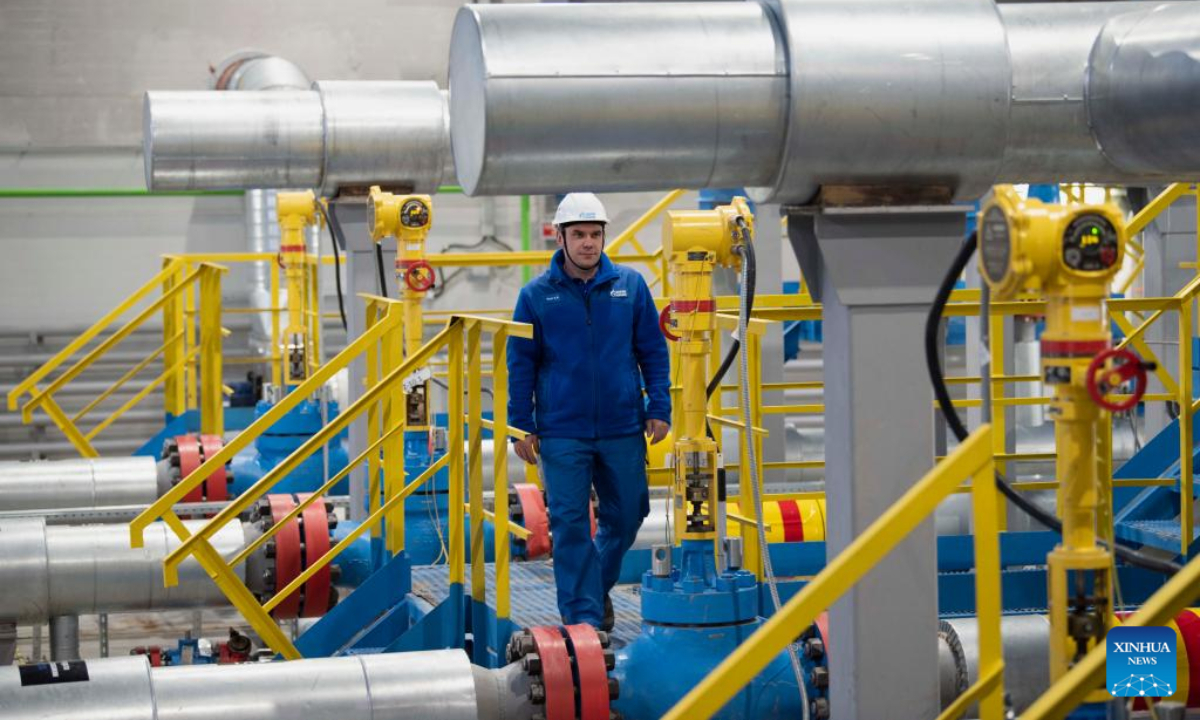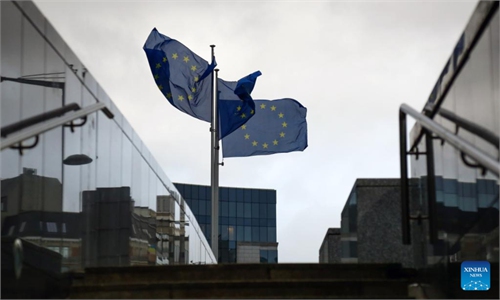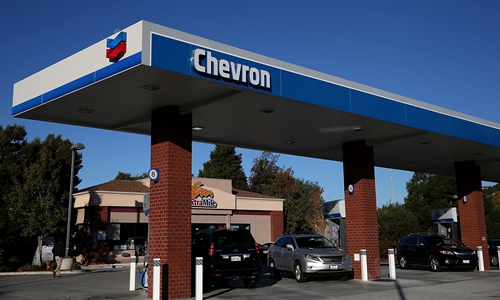EU puts new caps on Russian energy exports
Sanctions to bite Europe's economy, widen differences with US: experts

A staff member patrols to check equipment at Kovykta gas condensate field in Irkutsk, Russia, Dec 18, 2022. Photo:Xinhua
The EU imposed new price caps on Russian refined oil products on Sunday, the latest Western sanctions on Russian oil exports since the eruption of the Ukraine-Russia military conflict last year. But analysts said the EU policy change is unlikely to produce any significant impact.
As the sanctions and counter-sanctions continue to escalate, Europe's energy crisis and economic recession will lead to a policy rift with the US, they said.
The caps are set at $100 per barrel on products that trade at a premium to crude, principally diesel, and $45 per barrel for products that trade at a discount, such as fuel oil and naphtha, according to an announcement issued by the European Council on Saturday.
The cap prohibits Western insurance, shipping and other companies from financing, insuring, trading, brokering or carrying Russian crude and oil products unless they were bought at or below the set price caps.
There will be a 55-day transitional period for the vessels carrying Russian petroleum products that were purchased and loaded prior to Sunday, according to the announcement.
The move will force Russia to reduce output of refined oil products in the short term to balance the market and add to the oil price volatility, Lin Boqiang, director of the China Center for Energy Economics Research at Xiamen University, told the Global Times on Sunday.
Russian oil may find its way to markets that are still welcoming it such as Asia and other continents, although the construction of infrastructure will be "expensive and time-consuming."
The price gap marks the third sanction from the EU on Russian oil since the Ukraine crisis broke out nearly a year ago, the CCTV reported.
In December, the G7 and Australia joined the EU in adopting a $60-per-barrel price cap on Russian crude oil.
Last June, the EU announced a ban on imports of seaborne Russian crude oil and petroleum products, but excluded sanctions on pipeline shipments to Europe. The ban is also effective from Sunday.
Among the countermeasures, Russia banned the supply of crude oil and oil products to nations that abide by the caps from February 1, effective for five months.
The upgraded energy sanctions from the West show that the initial effect was not satisfactory, Chen Jia, an independent analyst on global strategy, told the Global Times on Sunday.
"With volatile energy prices, the price caps were inconsequential," Chen said.
The IMF expects the price caps to have little impact, according to its World Economic Outlook update issued in January.
"At the current oil price cap level of the G-7, Russian crude oil export volumes are not expected to be significantly affected, with Russian trade continuing to be redirected from sanctioning to non-sanctioning countries, " the document said.
Despite the expected restrictions, exports of low-sulfur diesel and gas oil from the Russian Black Sea and Baltic ports are expected to grow in February by 5-10 percent month-on-month to 4.2-4.3 million tons, data from traders and Reuters calculations said.
As sanctions and counter-sanctions increase, it would eventually bite EU energy prices and the bloc's economy, while expand the divergence between EU and US, experts said.
After European countries stopped buying Russian oil as a result of sanctions, they imported from the US, with exorbitantly higher prices and transportation costs, Lin said. "The sanctions leave the US the biggest winner," Lin said.
The core differences between EU and US are widening, Chen said.
US, due to its geography and energy independence, has made huge profits, but EU has to absorb the high cost of the energy crisis and will be deeply trapped in stagflation, Chen said.
Europe is facing lower-than anticipated gas prices, having stored enough gas to make shortages unlikely this winter. However, refilling storage facilities with much-diminished Russian flows will be challenging ahead of next winter, the IMF said. With elevated food and fuel prices, social unrest may increase, it said.


